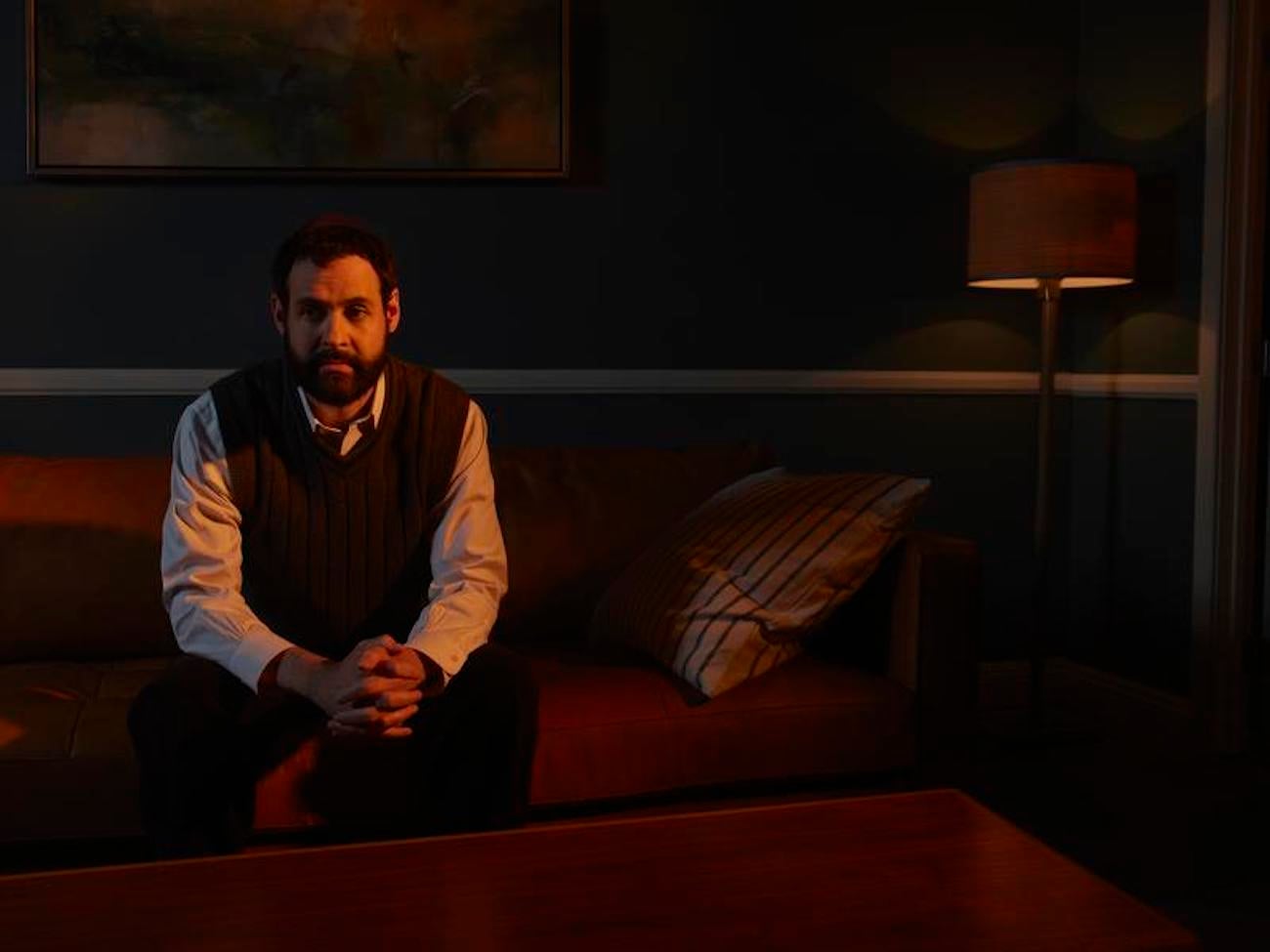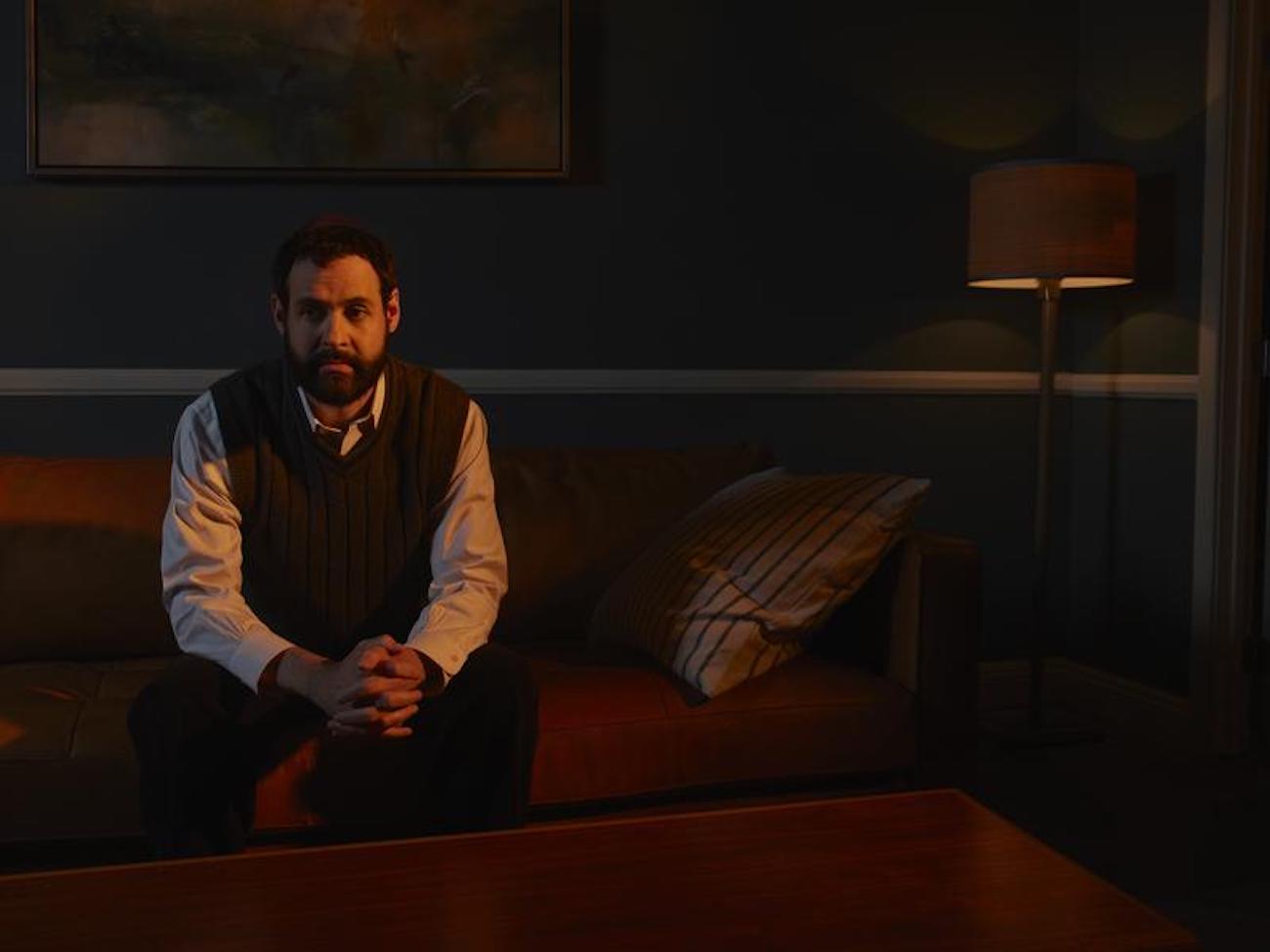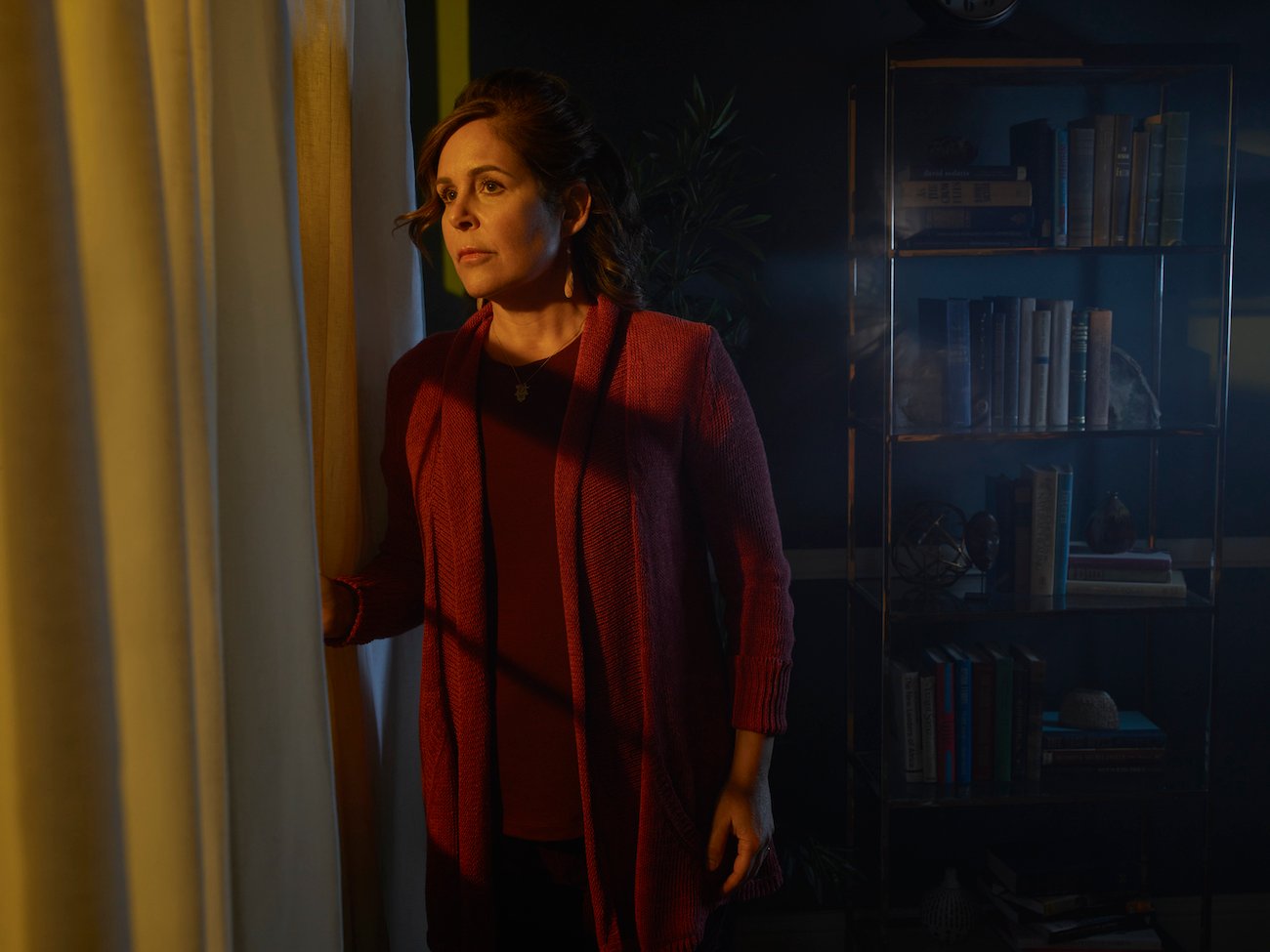
Ezra’s Wedding in ‘The Patient’ Episode 3 Explains the Strauss Family’s Estrangement
Episode 3 of The Patient dives deeper into Alan Strauss’ (Steve Carell) estrangement with his son Ezra (Andrew Leeds). Find out where the rift between Ezra and his parents began in the Hulu series. If you’re wondering how Beth, a woman of the Jewish faith, could become a cantor at her temple, we’ve got the answer. We spoke with a cantor to learn more about Beth’s (Laura Niemi) involvement at her temple.
[SPOILER ALERT: Spoilers ahead for The Patient Episode 3, “Issues.”]

‘The Patient’ Episode 3 explains Alan and Ezra’s relationship
From the beginning, it’s clear Alan doesn’t have the best relationship with his son, Ezra. In the first episode, Ezra denies the guitar Alan brings to the pawn shop — a symbol of his mother’s cantorial responsibilities and, in a way, of their strained relationship.
Alan’s flashbacks in “Alan Learns to Meditate” and “Issues” clarify where Ezra’s estrangement with the family began. He fell in love with Chava (Amy Handelman), an Orthodox Jew who observed the stringent rules of her faith. When Ezra started doing the same, it caused a rift between him and his mother, Beth.
Eventually, Chava and Ezra marry. As a cantor at their temple, Beth feels obliged to perform at their reception, but this only furthers the divide between mother and son.
There are an uncomfortable few seconds where Ezra’s wedding guests stir with disgust, a notion that strikes Beth to her core. Several guests get up and leave the reception hall. From that day forward, Ezra and Beth’s relationship was never the same. Their estrangement continued until Beth died from cancer.
Orthodox Jews believe female voices are ‘sensual,’ which is why Beth’s singing caused a reaction
“We don’t have women sing,” the Rabbi tells Beth in The Patient Episode 3. “Rabbi, it’s my son’s wedding,” Beth argues.
Orthodox Jews consider “the singing voice of a woman [to be] sensual and possibly stimulating to males” (via Chabad.org). “It is therefore forbidden for a man to hear a woman other than his immediate family sing and it is prohibited to pray or study Torah in that environment.”

Moreover, “the Talmud interprets kol b’isha ervah to mean that the voice of a woman is nakedness” (via Women of the Wall). Those who observe Orthodox traditions believe a woman’s voice can distract men from their prayers. For this reason, Ezra and many of his wedding guests were taken aback by Beth’s performance.
Judaism is a ‘huge spectrum,’ which is why Beth could be a cantor in her temple
“In traditional Judaism, there are many, many rules in place,” Cantor Josée Wolff told Showbiz Cheat Sheet over the phone. “A cantor is technically someone who is a representative of the community and who says certain prayers in the liturgy on behalf of those who are in the congregation.”
Wolff also said: “From a traditional perspective, that has to be done by a person who [has obligations] to say those prayers.” In the traditional sense, that means men.
The Orthodox Jewish community takes Halacha, which Wolff calls “Jewish legal law,” very seriously. Traditionally, women do not say the same prayers as men in the Orthodox Jewish faith. “Another reason why a woman couldn’t be a cantor in that kind of a community [is] because the women cannot fulfill the obligation for a male, while the female is not herself obligated in the eyes of traditional Jewish law,” Wolff added.
Like Beth, Wolff is a cantor. “There’s a huge spectrum [in Judaism],” Wolff said. “The more liberal, progressive [side] has reinterpreted many of the rules. I’m a Reform Cantor, which is a liberal branch of Judaism — we believe in Egalitarian Judaism, meaning men and women … have equal obligations.” Like Wolff, Beth and Alan believe in Egalitarian Judaism within the narrative of The Patient.
Stream new episodes of The Patient on Hulu every Tuesday.


